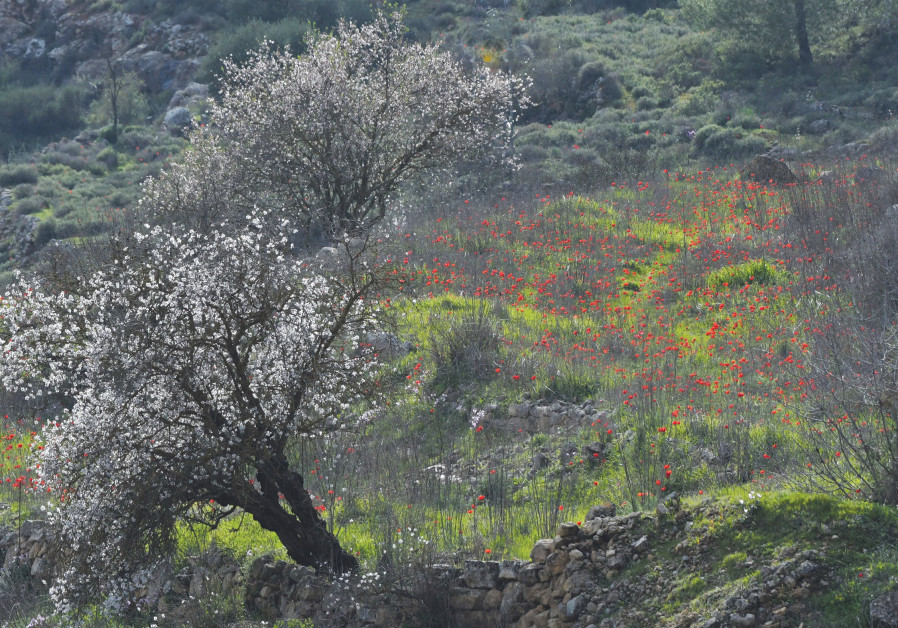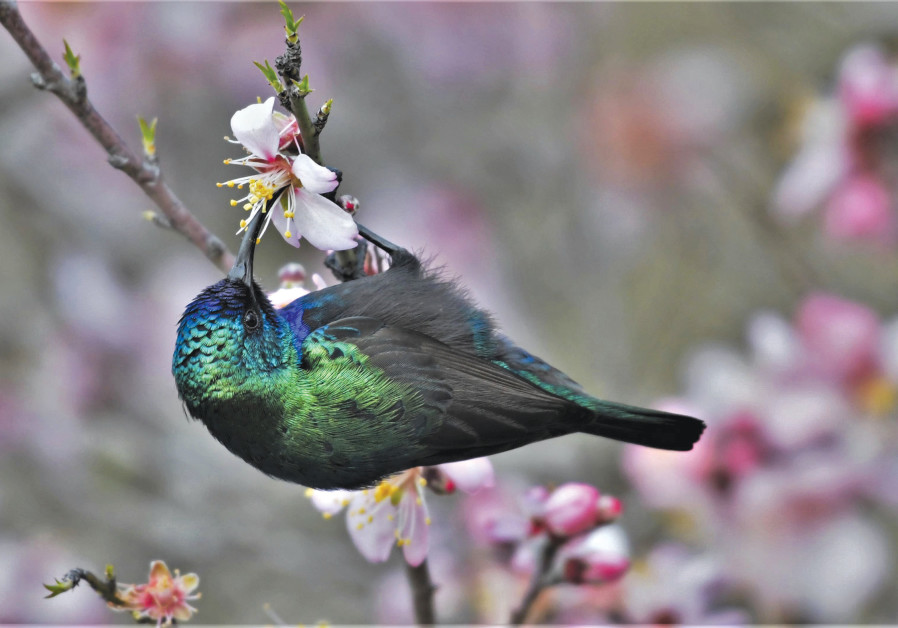Since the last article I published, I have turned 17 and when reflecting back on the past year, one of my main focuses has been the battle to save the Jerusalem Hills.Four large construction projects – Reches Lavan, Reches Lavan B, Har Heret and the Hadash extension – which threaten the natural forests and springs of west Jerusalem, have been met with a valiant public struggle which has matured and grown with tremendous speed. I, too, have matured and grown.Our country is going through a spurt of construction. In my neighborhood alone, I have witnessed buildings becoming taller, roads becoming wider, empty dirt fields which were used for apple orchards transformed into countless housing units.We are not here to suppress the city’s growth and its need for housing; to the contrary, we are here to support it. However, quick growth must be responsibly monitored and calculated. When it’s carried out as an act of desperation or due to ulterior motives and personal interests it becomes uncontrolled and dangerous. Making matters worse is that these decisions, which are made for the wrong reasons and with the wrong people in mind, are irreversible.Once tens of thousands of trees are cut down, natural springs are dried up and an ecological system is destroyed, there will be no turning back. Our beautiful landscape will be covered in concrete, we will be breathing in dust, inhaling the city’s pollution, much of which is currently absorbed by the surrounding forests.It will be a heartbreaking comparison to the words of Naomi Shemer’s song, “Jerusalem Of Gold”:
“The mountain air is clear as wine
And the scent of pines
Is carried on the breeze of twilight
With the sound of bells.”
(Translated by Aura Levin Lipski)  The Society for the Protection of Nature in Israel published a report in 2019 which shows that there are over 80,000 potential housing units that can be built within the city, meeting the demand for urban development. In addition, policies have changed to allow for the construction of taller buildings near train tracks, the development of new neighborhoods and a potential to rebuild using existing infrastructure which all provide alternatives to harming nature. These new options have been made possible since the Reches Lavan project was first proposed. However, there is such heavy pressure to develop the lands, and open spaces are not protected by law and therefore have little chance of surviving. Two decades ago, the Safdie project planned for the same area was scrapped after much public outcry and some 19,000 people had signed to voice their objections. Now such a plan is rearing its ugly head again and it is our responsibility to build a national park to ensure that the Jerusalem Hills continue to thrive for future generations. The surroundings already function as a social setting, an informal national park. People from different backgrounds gather and breath in the beautiful nature which exists just a short bus ride away from the busy city.My friends and I have enjoyed the natural springs, most famously Ein Lavan, and walked through marked and unmarked paths more times than I could count. The area also serves people from all over the country just as a place to get away. I see the idea of establishing a park as a national model for providing sane and healthy urban development which takes into account the true well-being of the city and is not only measured by the number of housing units, but also by the quality of life. One of the recurring reactions from planners and politicians to our struggle has been: “It doesn’t matter what plan is proposed, you will say no.”It is true that we are saying no, and forcefully, to the destruction of the Jerusalem Hills, but we are saying yes just as loudly to a plan that would serve residents. While the building plans are getting constant public objections, the idea for a national park is supported by the residents. Moreover, the residents have shown that they are willing to fund it in order to see it become a reality.
The Society for the Protection of Nature in Israel published a report in 2019 which shows that there are over 80,000 potential housing units that can be built within the city, meeting the demand for urban development. In addition, policies have changed to allow for the construction of taller buildings near train tracks, the development of new neighborhoods and a potential to rebuild using existing infrastructure which all provide alternatives to harming nature. These new options have been made possible since the Reches Lavan project was first proposed. However, there is such heavy pressure to develop the lands, and open spaces are not protected by law and therefore have little chance of surviving. Two decades ago, the Safdie project planned for the same area was scrapped after much public outcry and some 19,000 people had signed to voice their objections. Now such a plan is rearing its ugly head again and it is our responsibility to build a national park to ensure that the Jerusalem Hills continue to thrive for future generations. The surroundings already function as a social setting, an informal national park. People from different backgrounds gather and breath in the beautiful nature which exists just a short bus ride away from the busy city.My friends and I have enjoyed the natural springs, most famously Ein Lavan, and walked through marked and unmarked paths more times than I could count. The area also serves people from all over the country just as a place to get away. I see the idea of establishing a park as a national model for providing sane and healthy urban development which takes into account the true well-being of the city and is not only measured by the number of housing units, but also by the quality of life. One of the recurring reactions from planners and politicians to our struggle has been: “It doesn’t matter what plan is proposed, you will say no.”It is true that we are saying no, and forcefully, to the destruction of the Jerusalem Hills, but we are saying yes just as loudly to a plan that would serve residents. While the building plans are getting constant public objections, the idea for a national park is supported by the residents. Moreover, the residents have shown that they are willing to fund it in order to see it become a reality.  From December 6 to 18, we carried out a fundraising campaign. I was utterly shocked by the great response. It filled me with so much hope. We raised NIS 391,000 with 2,900 people giving donations in merely 12 days. Regardless of how unimportant the authorities may try to make us feel, the campaign showed the power of the public.We have also gained much support from larger organizations. We have many allies in the political arena, among them, members of both the coalition and opposition in the municipality including the Hitorerut party headed by Ofer Berkovitch, and also members of Knesset. Another organization at our side is the Sustainable Jerusalem Lobby headed by Naomi Tsur. One of the first events taking place after the fundraising campaign is an exhibit of beautiful photographs by Dudu Ben Or which capture the aura of the Jerusalem Hills. Reacting to the photos, Tsur said: “This beautiful exhibition of Dudu’s photographs gives us a chance to remember just what we are fighting to preserve... We need the Jerusalem Hills in order for our beloved city of Jerusalem to survive and thrive for future generations.” As I looked at the photographs on my computer, Naomi’s words resonated with me. I was astounded by their ability to speed up my heart as I am reminded of the urgency and what is at stake while at the same time, I am filled with hope through their beauty. I hope you experience the same swelling of emotion when you visit the exhibit. It is taking place during the month of January in the Museum of Natural History.For more information, visit our Facebook page: Save the Hills of Jerusalem.
From December 6 to 18, we carried out a fundraising campaign. I was utterly shocked by the great response. It filled me with so much hope. We raised NIS 391,000 with 2,900 people giving donations in merely 12 days. Regardless of how unimportant the authorities may try to make us feel, the campaign showed the power of the public.We have also gained much support from larger organizations. We have many allies in the political arena, among them, members of both the coalition and opposition in the municipality including the Hitorerut party headed by Ofer Berkovitch, and also members of Knesset. Another organization at our side is the Sustainable Jerusalem Lobby headed by Naomi Tsur. One of the first events taking place after the fundraising campaign is an exhibit of beautiful photographs by Dudu Ben Or which capture the aura of the Jerusalem Hills. Reacting to the photos, Tsur said: “This beautiful exhibition of Dudu’s photographs gives us a chance to remember just what we are fighting to preserve... We need the Jerusalem Hills in order for our beloved city of Jerusalem to survive and thrive for future generations.” As I looked at the photographs on my computer, Naomi’s words resonated with me. I was astounded by their ability to speed up my heart as I am reminded of the urgency and what is at stake while at the same time, I am filled with hope through their beauty. I hope you experience the same swelling of emotion when you visit the exhibit. It is taking place during the month of January in the Museum of Natural History.For more information, visit our Facebook page: Save the Hills of Jerusalem.
You are welcome to write us at savejerusalemhills@gmail.com.


